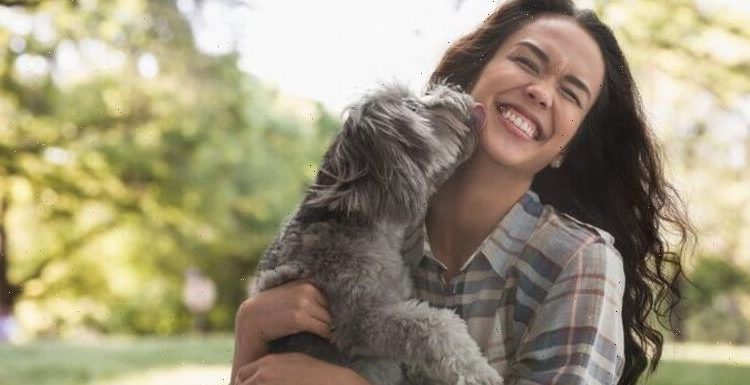
RSPCA rescue dog Ellie still waiting for home after 450 days
We use your sign-up to provide content in ways you’ve consented to and to improve our understanding of you. This may include adverts from us and 3rd parties based on our understanding. You can unsubscribe at any time. More info
It could also be the case that not washing your hands after picking up your pet’s waste could be a health risk, too. According to a Lancet report, superbugs killed over a million people in 2019. But pet lovers should beware, as domestic animals may be boosting rates of superbug infections by spreading an antibiotic-resistant strain of bacteria.
Antibiotic resistance occurs when pathogens evolved to evade certain drugs.
Researchers from the Royal Veterinary College and the University of Lisbon have found that both cats and dogs could be passing on these antibiotic-resistant strains of bacteria.
They worked this out by taking stool samples once a month for four months from 114 healthy people, 85 dogs and 18 cats.
After genetic analysis, it was revealed that 15 pets and 15 humans were shown to carry a “bacteria of concern”.
Half of the infected pets had an antibiotic-resistant strain, while one-third of the humans.


The strain was shown to be resistant to drugs like penicillin, as well as other treatments.
The researchers said that the transmission of these strains occurs “via the faecal-oral route”.
This means that dogs licking their backsides could be spreading the bacteria when they lick their owners after.
It could also be passed on to humans if they pick up their pets’ waste and touch their mouth without washing their hands.
Dr Juliana Menezes, University of Lisbon, who also led the study, said: “Even before the COVID-19 pandemic, antibiotic resistance was one of the biggest threats to public health because it can make conditions like pneumonia, sepsis, urinary tract and wound infections untreatable.

“Although the level of sharing from the households we have studied is low, healthy carriers can shed bacteria into their environment for months, and they can be a source of infection for other more vulnerable people and animals such as the elderly and pregnant women.”
Dr Menezes also warned dog owners not to kiss their dogs, or let them eat from the same plate.
She said: “Previous studies have linked the close contact factors between pets and their owners to the sharing of bacteria (whether resistant or not).
“These risk factors include kissing, licking the owner’s face or eating from the owner’s plate.”
DON’T MISS
The deadly weapons UK could send to Ukraine to end Putin’s invasion [REPORT]
UK’s energy industry ‘is booming’ as £300m ‘mammoth’ factory unveiled [REVEAL]
British farmers face extra £760m bill as Putin BLOCKS key exports [INSIGHT]


She advised that animal lovers who might get a bit too might cosy with their pups might want to change the relationships they have with their dogs for the sake of their own safety.
Dr Menezes said: “ To reduce the spread of these bacteria within the household, it would be necessary to reduce this close relationship between the owners and their pets, and also to have greater hygiene practices.
“Bearing in mind that the bacteria we studied are found colonising the gastrointestinal tract, the transmission occurs via the faecal-oral route, so good hygiene practices on the part of owners would help to reduce sharing, such as washing hands after collecting dog waste, or even after petting them.”
Source: Read Full Article